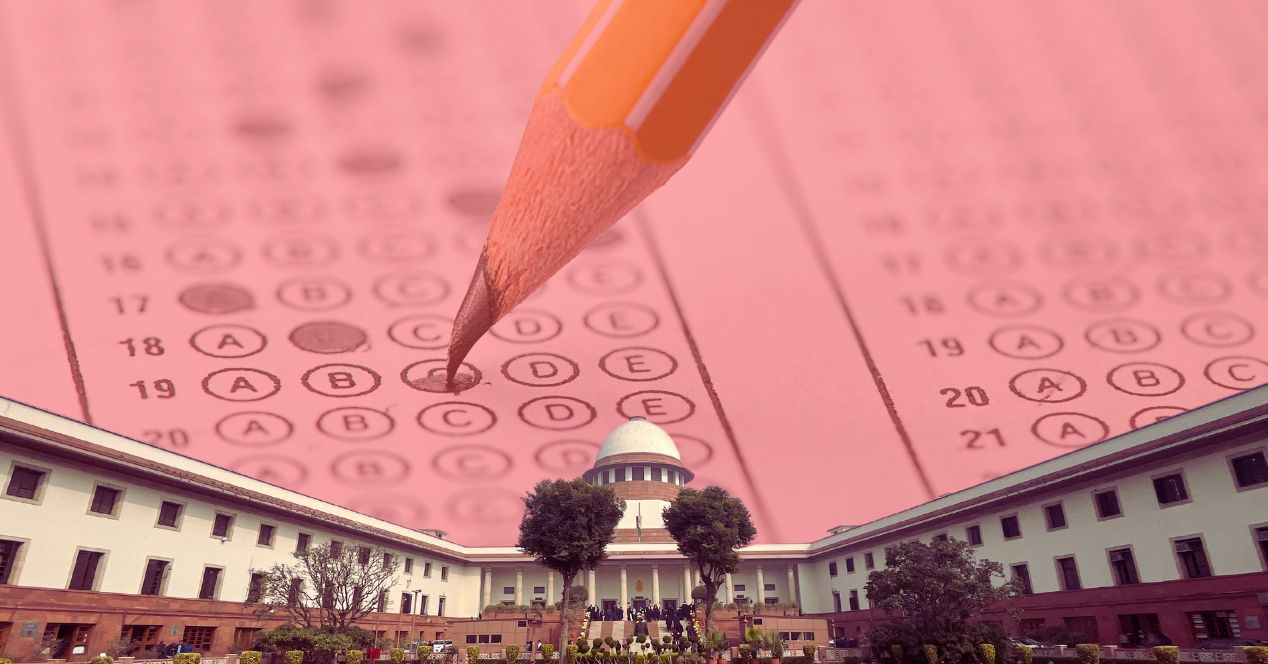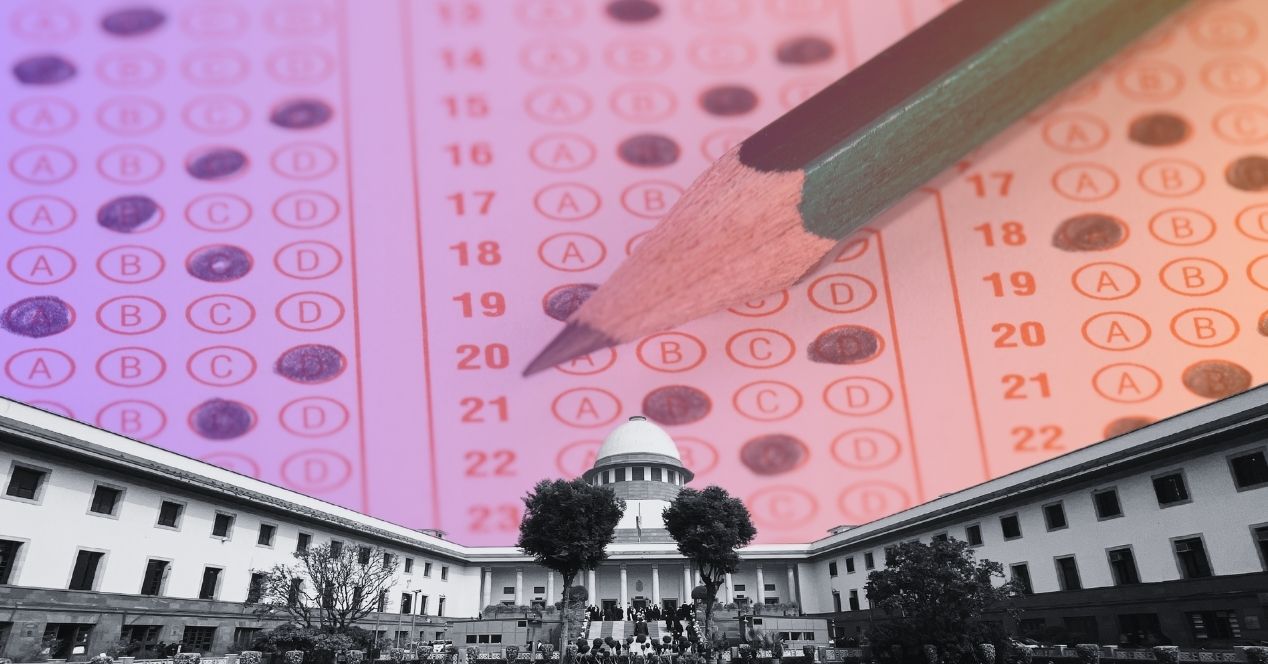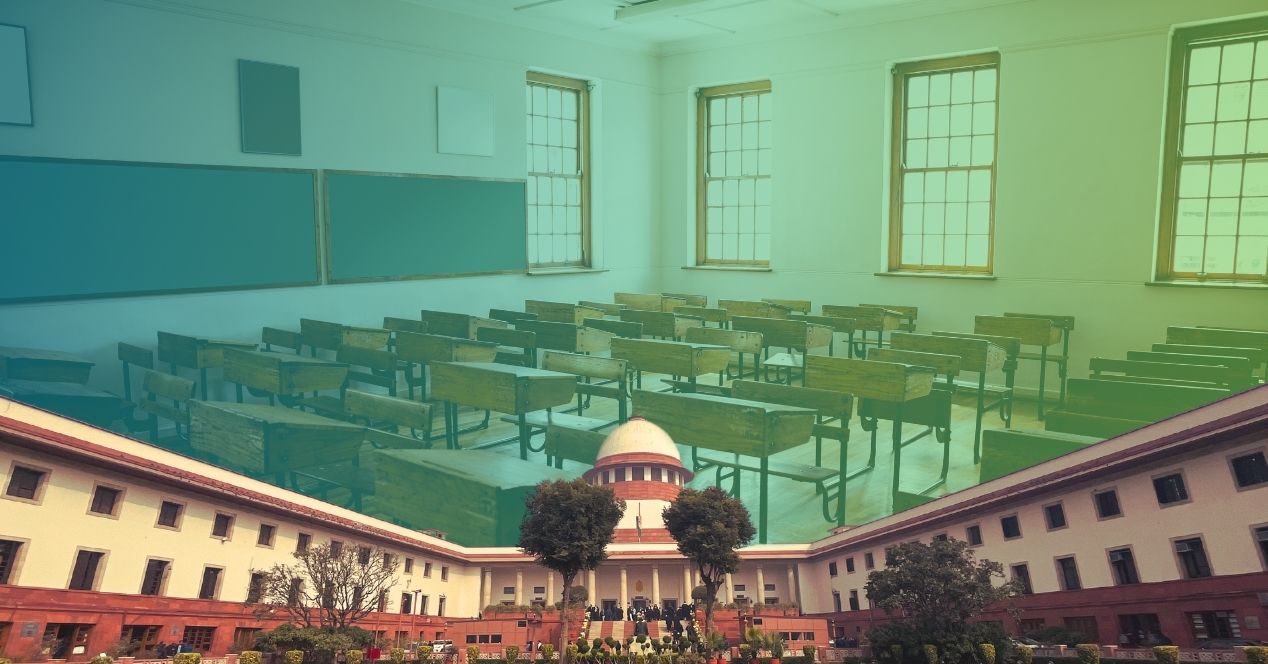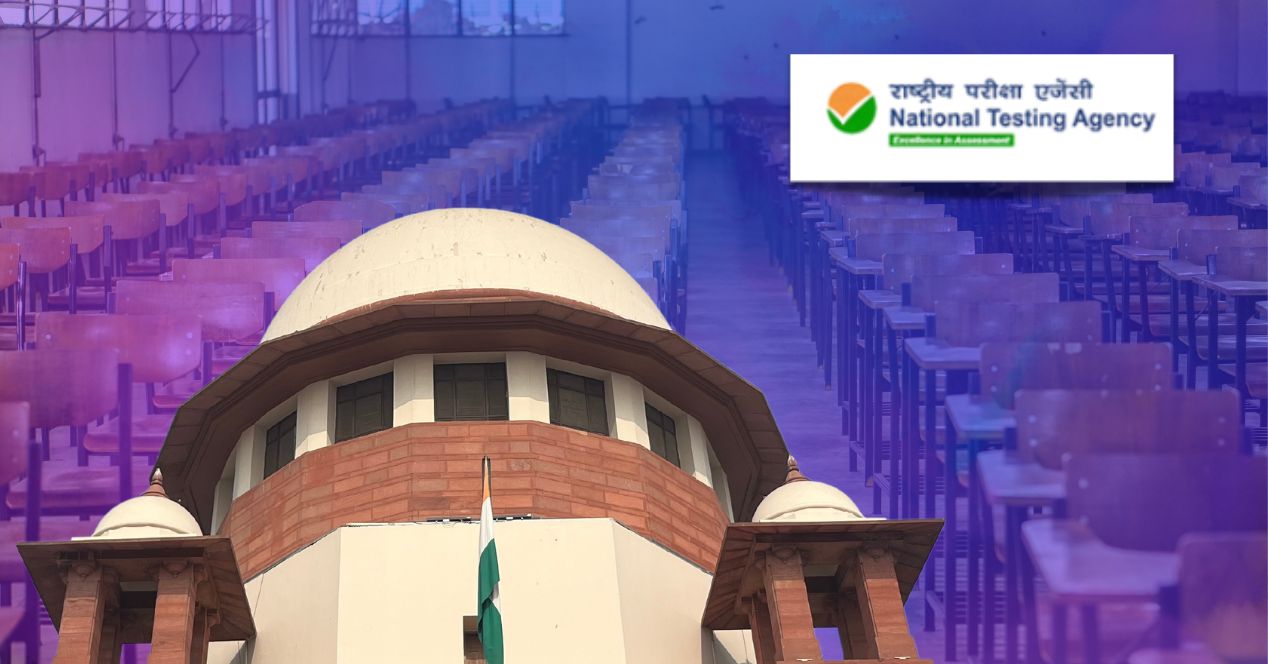Analysis
Supreme Court refuses to cancel 2024 NEET UG exam due to insufficient evidence of “systemic” leak
The Court held that a retest would have “cascading effects” on medical education and prejudice students from marginalised communities
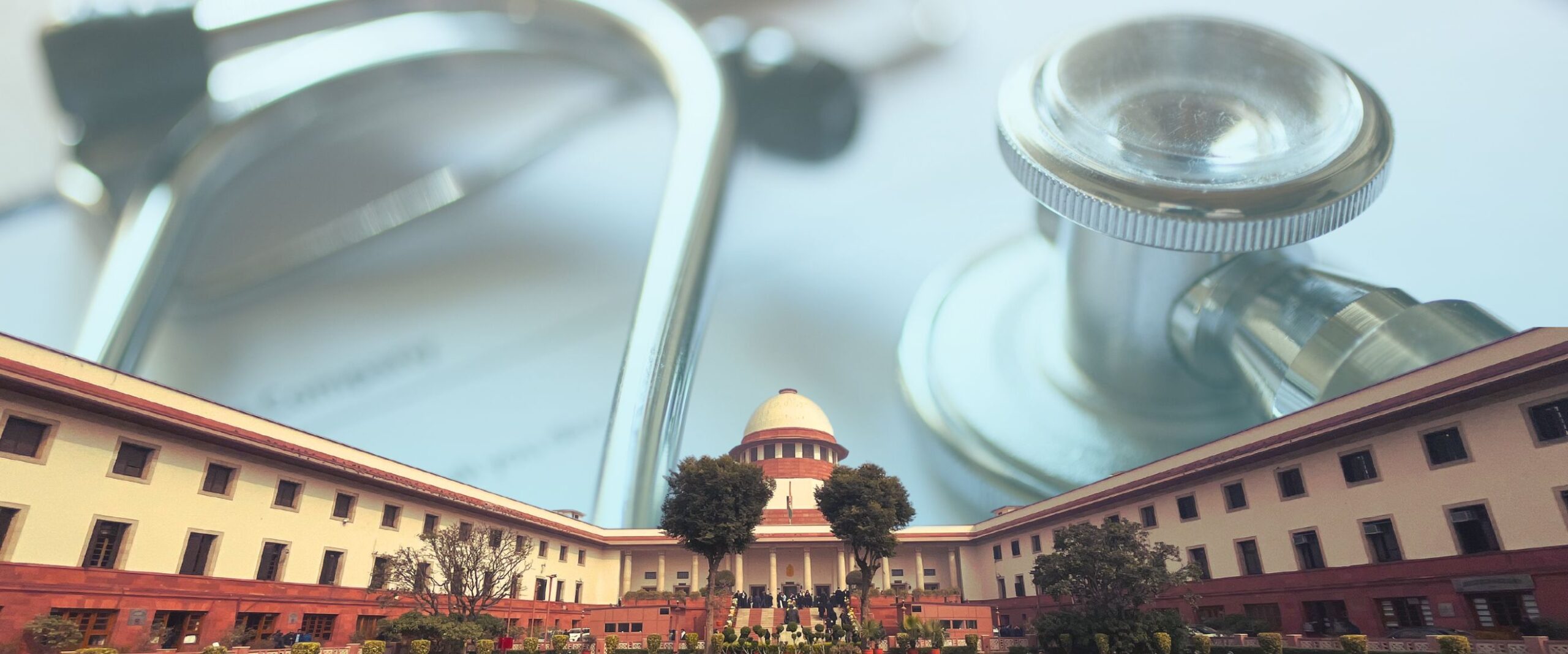
Today, after four days of hearings, a bench comprising Chief Justice D.Y. Chandrachud, along with Justices J.B. Pardiwala and Manoj Misra refused to cancel the 2024 NEET UG exam conducted on 5 May 2024. The Court’s order comes just a day before the 2024 NEET counselling for medical admission is scheduled to begin.
The Court reasoned that the paper leak was not “systemic”or widespread enough that it tampered with the “integrity” of the exam.
The Court also closed the chapter on one disputed question in this year’s exam for which several students were ordered grace marks. Yesterday, the Court had instructed the Director of Indian Institute of Technology, Delhi, to set up a committee to conclusively determine the correct answer for a question for which two answers were accepted. Reading the expert committee’s report the Chief today concluded that the right answer was: “Statement 1 is correct, but Statement 2 is incorrect.” Therefore , the Court noted that students who were awarded marks for the other option would be negatively marked.
Advocate Tanvi Dubey appearing for several petitioners in the case, pleaded for the Court not to declare the other option as incorrect, as that would mean that over four lakh students would lose five marks, thereby drastically impacting their ranks. But the Court did not entertain this plea in its order. “Answer should be correct on principles,” Justice Misra remarked, “You should not be relying solely on incorrect information in one textbook.”
Solicitor General Tushar Mehta began the day’s arguments by responding to some of the allegations raised by petitioners during the previous hearings. Additionally, he briefed the bench on some key discoveries made by the CBI during their probe.
Mehta: There were no instances of malpractice among candidates who travelled to different centres for the NEET exam
Previously, alluding to a “widespread” leak, the petitioners had pointed out that several candidates had suspiciously travelled long distances to centres in other states to give NEET. Yesterday, Senior Advocate Narendar Hooda appearing for the petitioners had alleged some of these centres were “coaching hubs” where the possibility of malpractices was high.
Today, Mehta argued that there was nothing suspicious about this. He submitted that cities like Kota and Sikar in Rajasthan have traditionally been high-performing cities where students from different domiciles undergo rigorous training for the exams. This is why some of the highest qualifying students were from centres in these cities.
Hooda had also cited an example of a student who travelled from Godhra, Gujarat to Belgavi, Karnataka to give the exam. Mehta informed the bench that in Belgavi, only 2.05 percent of students qualified in this year’s NEET. Similarly, he said, in Hazaribagh and Patna, where a paper leak is under investigation, only 5.53 and 4.61 percent of the students qualified respectively.
The petitioners had also alleged that the National Testing Agency (NTA) did not require the candidates to submit any proof of residence at the time of registration. This, they said, had enabled students to travel to any centre in the country. Mehta stated that the NTA “did not want to sit on appeal” on student’s decision to choose a centre of their convenience. “We respect their choice, whether it is justifiable or not,” he said.
Mehta: The distribution of incorrect question papers in 12 centres was due to “human error”
A major controversy highlighted by the petitioners was the distribution of incorrect question papers in Jhajjar, Haryana and other locations. There were two sets of papers stored in the State Bank of India and Canara Bank respectively. The centres were supposed to distribute the paper stored in the SBI but some distributed the paper stored in Canara Bank instead.
Today, Mehta admitted that this was due to “human error” on part of the of the centre superintendents and city coordinators. However, he also submitted that out of 4750 centres, incorrect papers were distributed in only 12. Further, he informed the bench that in four of these 12 centres, the right papers were distributed immediately after the error was discovered. In the remaining eight centres, the students answered the Canara Bank question paper in full. Therefore, they were marked according to the Canara Bank answer key.
CJI Chandrachud asked how Canara Bank handed out the papers. Mehta clarified that the bank personnel were unaware about which question paper was to be distributed. This was a “lacuna,” he said and suggested that both banks must be instructed in advance whether or not they must distribute the papers stored with them.
CBI: The Paper leak in Hazaribagh reached 155 “beneficiaries”
The CBI is currently investigating the paper leak that originated at Hazaribagh and reached Patna. The petitioners had alleged that the leak was “widespread” as it occurred one or two days before the exam. Additional Director of the CBI, A.Y.V Krishna addressed the bench briefly today. He informed the bench that the investigation showed that the paper leak had occurred on the morning of the exam.
Krishna told the Court that the person responsible for the leak was one Pankaj Kumar. According to CCTV footage, Kumar entered the strongroom in one Oasis School in Hazaribagh at 8:02 am on the morning of the exam. He used a toolkit to break through various layers of packaging, accessed one question paper, took pictures of each page on his cell phone and then resealed the plastic packaging with a lighter. He was seen exiting the room at 9:20 am. After exiting the premises, Kumar sent the photographs on phone to another accomplice who shared it with seven “solvers” in a guest house in Hazaribagh. After the paper was solved, the answers were shared via phone across two locations in Hazaribagh and two in Patna. In Patna, students memorised the answers ticked on photocopies of the leaked paper and burnt the papers. However, some of these weren’t burnt fully. They were recovered by the Bihar police, who traced the serial number of the copies to Hazaribagh.
Mehta added that according to the CBI investigation, 155 students had accessed the leaked papers, but only 32 had been identified so far. To convince the Court not to order a retest, Mehta also stated that most of these students had not qualified NEET.
Senior Advocate Sanjay Hegde, during rejoinder, raised suspicions about the investigation. He pointed out that if the leak occurred only in the morning, the candidates had just two or three hours to prepare for it. “Parents have paid 30 to 75 lakhs to the gang-members in advance. It is implausible that they did so for such a short, uncertain opportunity” he said.
Walking in the footsteps of Tanvi Sarwal
Petitioners had argued in Tanvi Sarwal v Central Bureau of Investigation (2015), the Court had allowed a retest when it was discovered that 44 students had benefited from a leak of the All-India Pre Medical Test, the predecessor of NEET.
Mehta submitted today that the Tanvi Sarwal decision would not apply to the NEET (UG) 2024 leak since in that case, the leak was country-wide and the network of the organised gang was spread across different states. However, in the present case so far, the CBI had discovered a leak only in Patna and Hazaribagh.
Petitioners: The investigation is not complete, the extent of the leak could be larger
During the rejoinder, Hooda highlighted several shortcomings of relying heavily on the CBI investigation “so far.” He asserted that the CBI had not concluded the investigation in the matter. “The CBI is not so novice that they would not try to find out if the leak went beyond Hazaribagh or Patna,” he said. He also pointed out that the CBI was yet to arrest the kingpin of the leak — Sanjeev Mukhiya, who has previously been indicted in major leaks in Rajasthan, Haryana and Uttar Pradesh. Hooda also submitted that the CBI had not yet seized the mobile phones through which the leaked papers were forwarded.
“If tomorrow Sanjeev Mukhiya is arrested and his mobile phone shows it was sent to multiple locations, in Sikar Rajasthan or in Buxar Punjab, would it be justifiable today to not order a retest only because the investigation is not complete?,” he asked.
CJI Chandrachud quickly pointed out the other side of the coin— if Hazaribagh-Patna was the extent of the leak, would a retest be justified in hindsight?
Hooda argued that the 23 lakh figure was being misused to create apprehension about a retest. “In truth, it is not true that 23 lakh students will be affected because of the leak. Only 56,000 students (qualified students from general category) would be affected. The rest, the majority of medical aspirants in this country, want this retest.”
Hooda also reminded the Court of the many irregularities in the exam. He discussed a video interview of the principal of Hardayal School, Jhajjar stating that the NTA directed her to let the students continue writing the Canara Bank papers. “There is nothing to monitor how [private operators] do their job. This examination is completely a farce!” he exclaimed.
Bench: There is no “systemic breach” to the sanctity of the exam
As the judges reassembled to deliver their verdict at the end of the day, over forty petitioners waited in silence as the careers of lakhs of medical aspirants hung by a chord.
Dictating the order on behalf of the bench, the Chief stated that even though an undisputed leak had occurred in Hazaribagh and Patna, it was “not possible to come to the conclusion that results of the examination stand vitiated or that there was a systemic breach to the sanctity of the exam.”
A retest, the bench said, would have “serious consequences for over two million students,” result in the “disruption of admission schedule,”create “cascading effects” on medical education, and prejudice students from marginalised communities.
During hearings, Mehta had also informed that NTA had created a seven-person committee headed by Dr K. Radhakrishnan, former chairperson of ISRO, to strengthen the conducting of exams by NTA. Mehta had said that the same was subject to the Court’s approval. The Court, in its order, confirmed this committee.
The bench has directed all petitioners with individual grievances to approach High Courts under Article 226 of the Constitution and disposed of the case.

